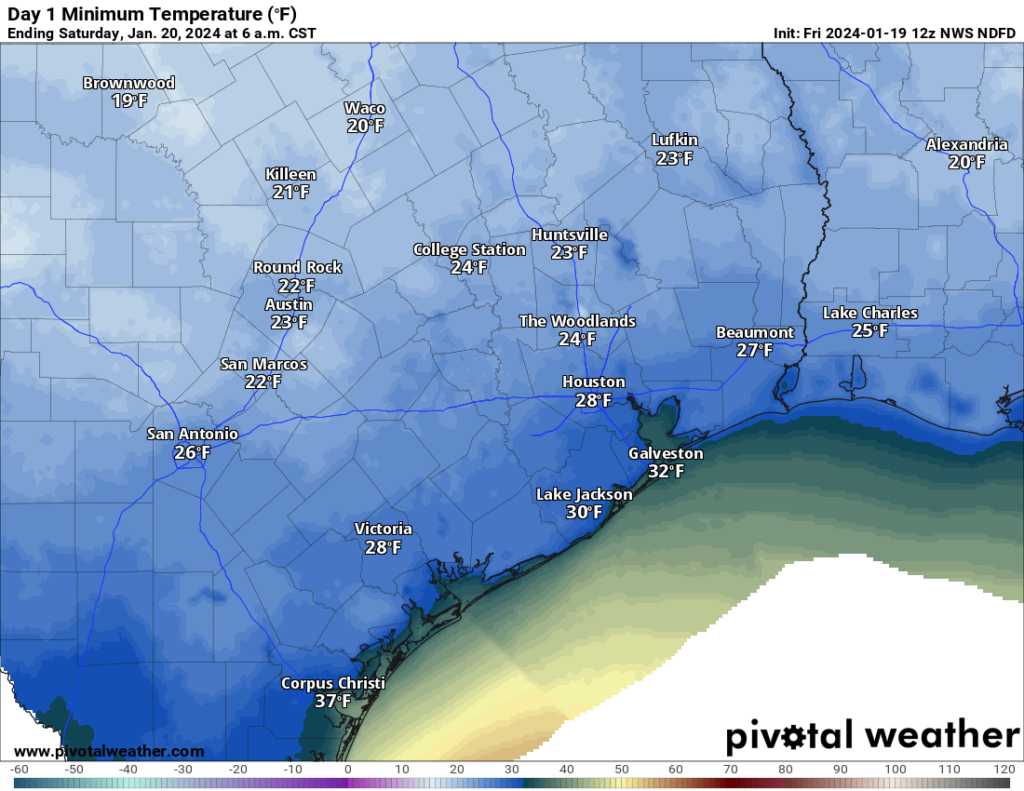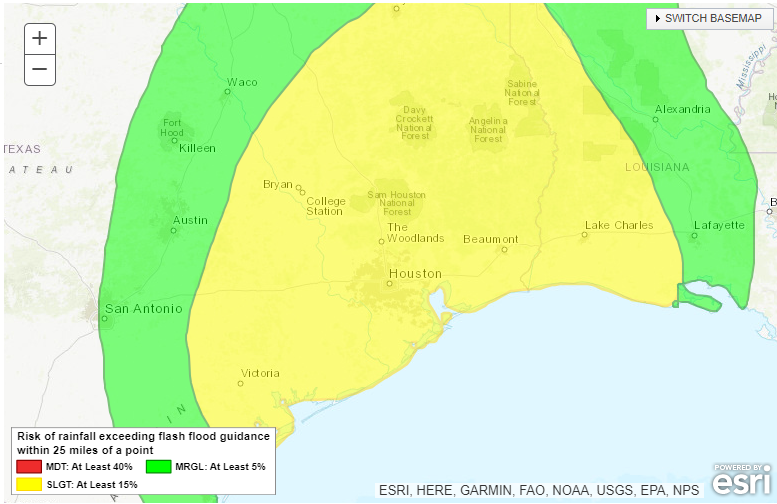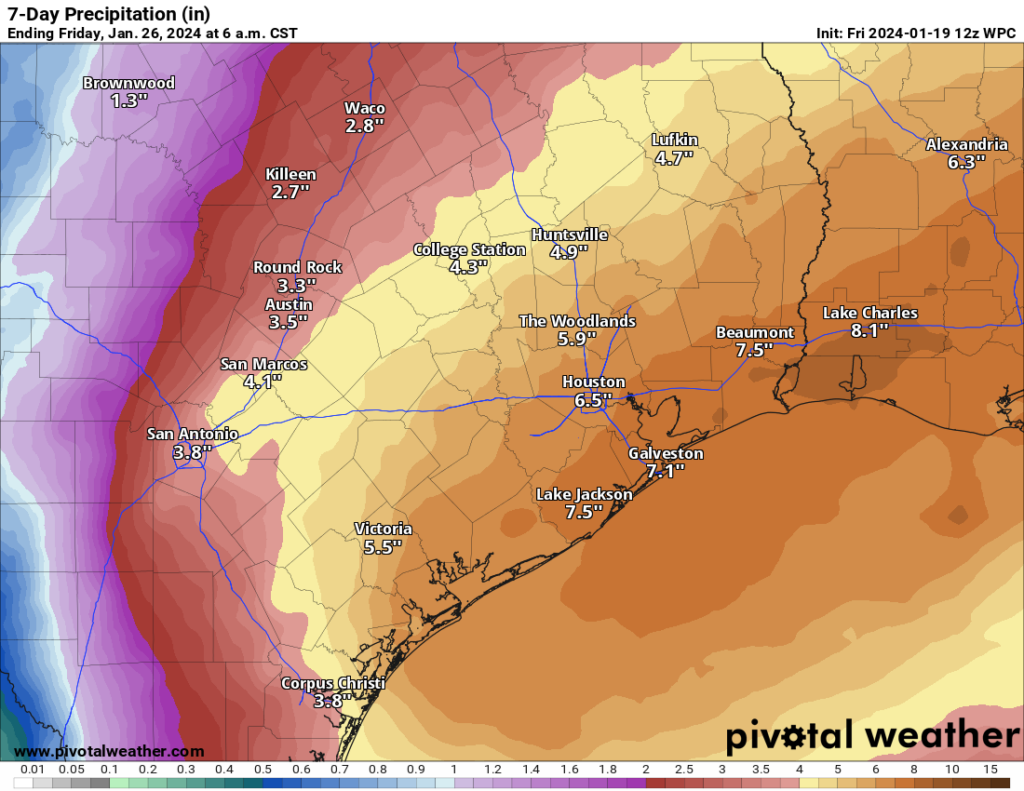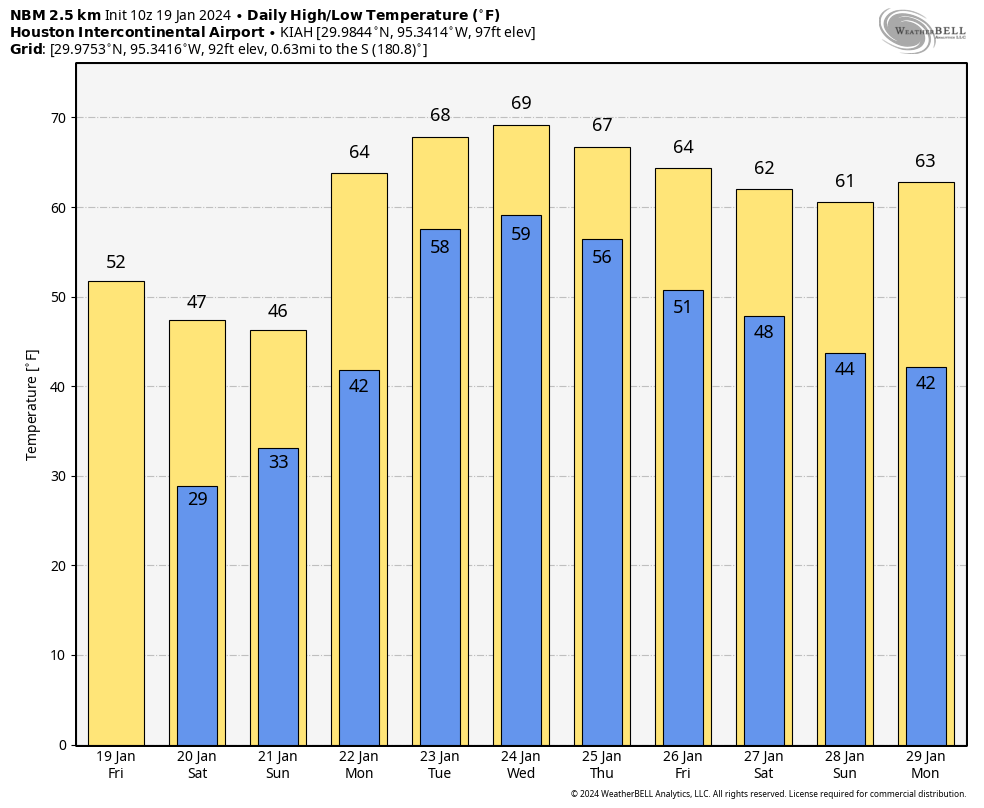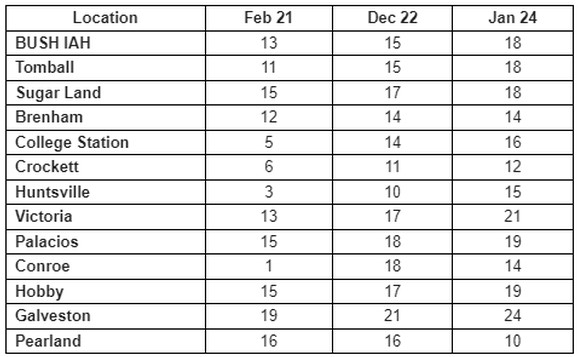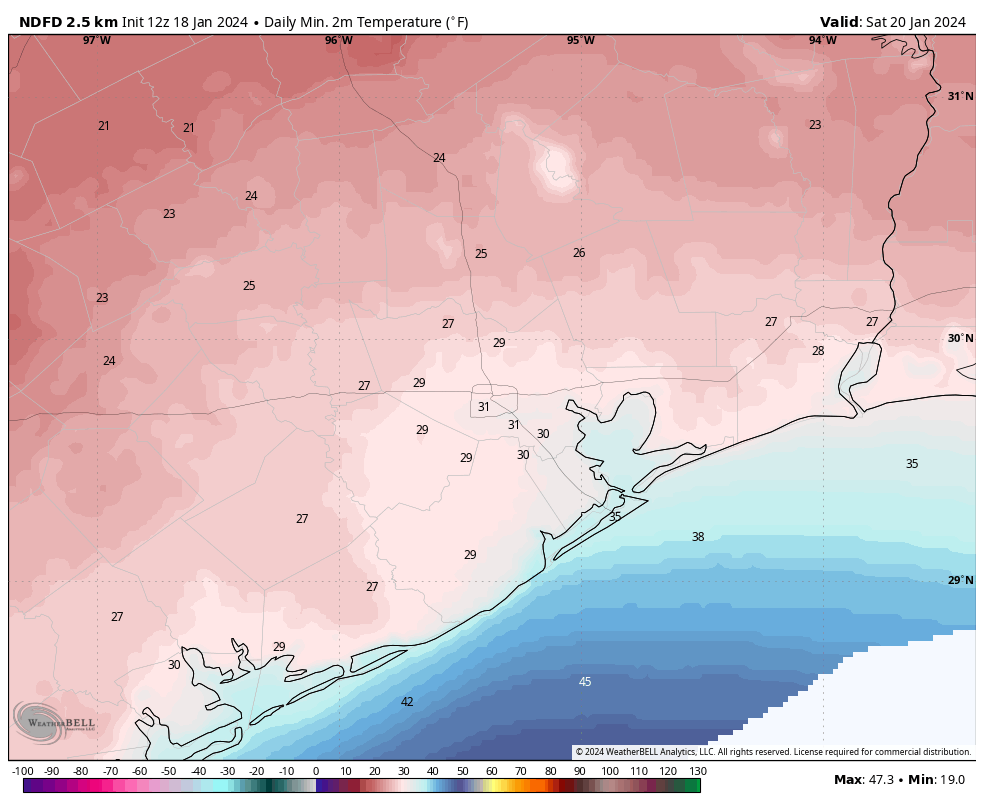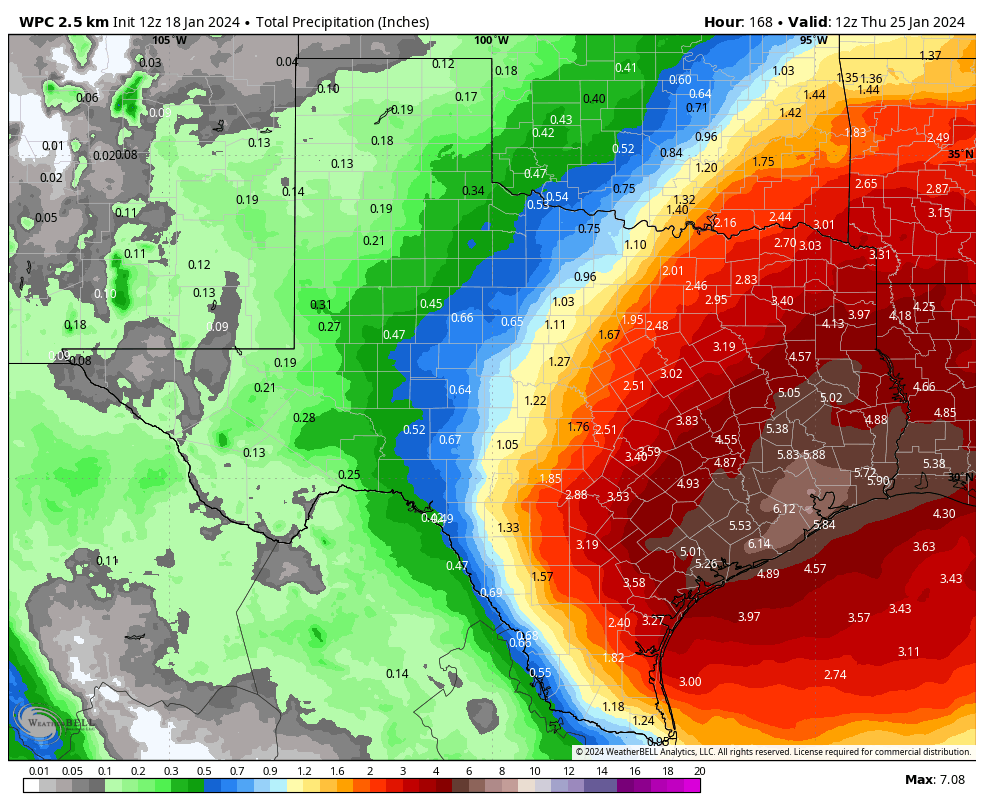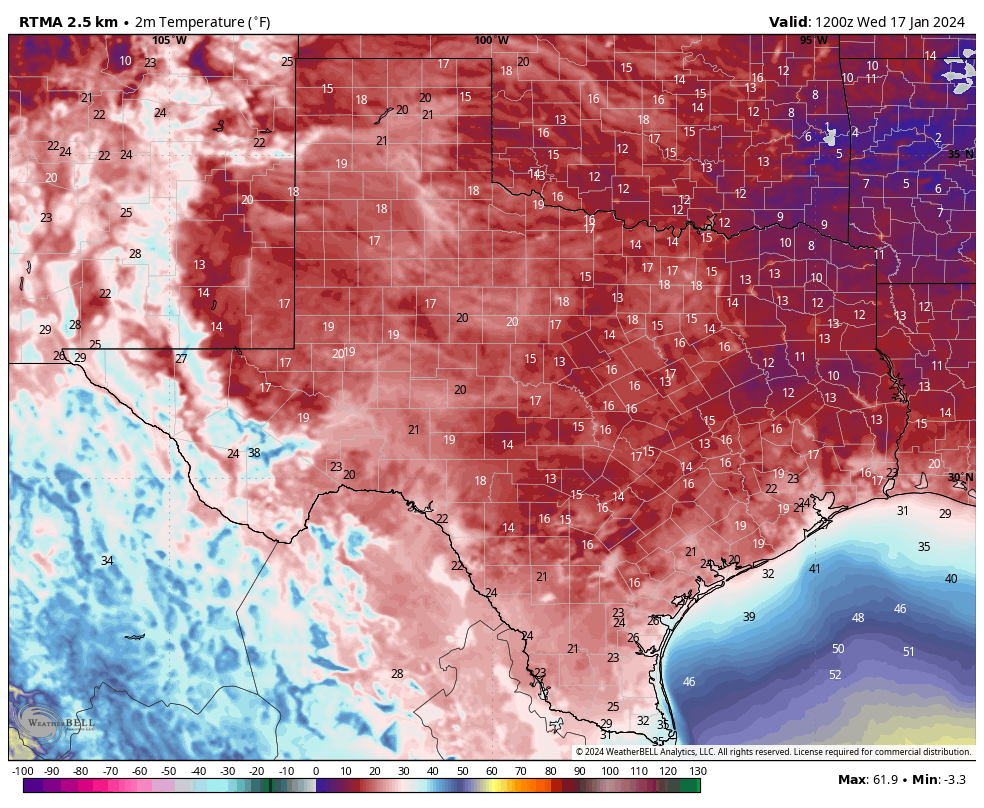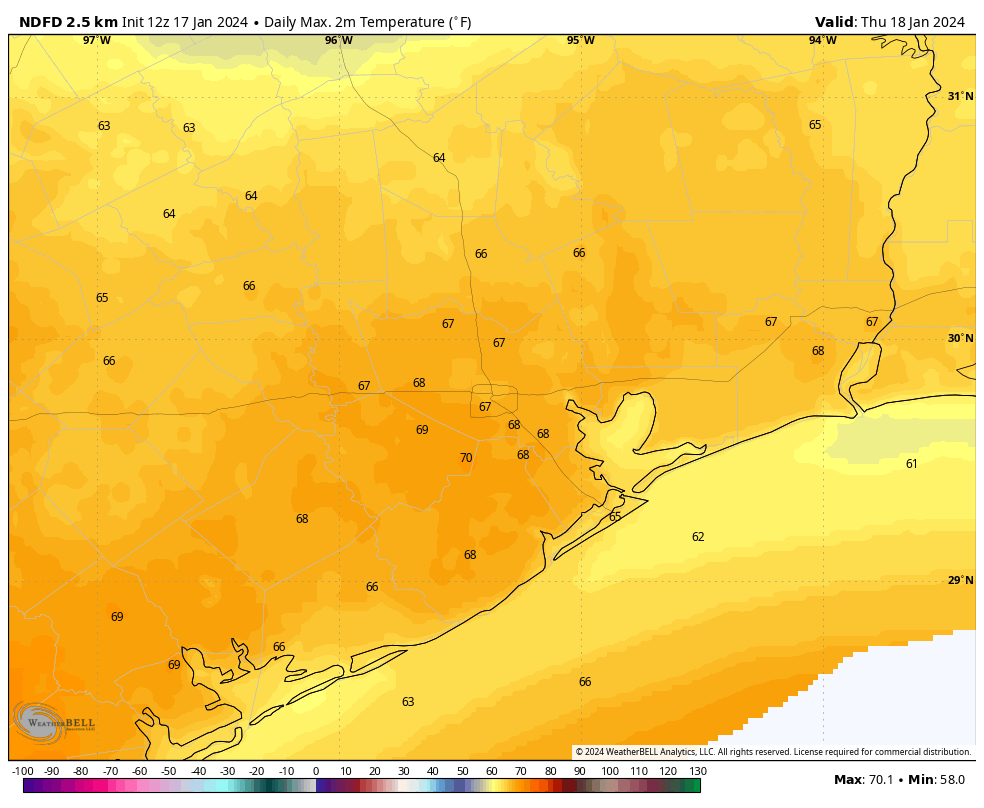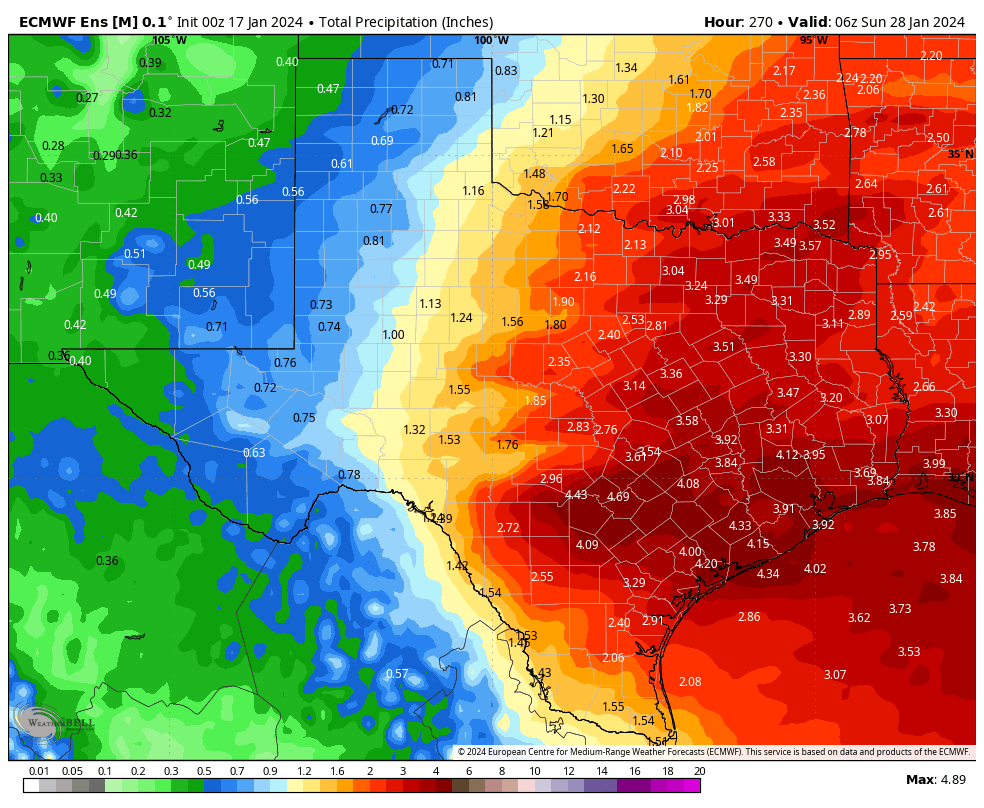Summary: Today will be cloudy and cold, but there should be no issues with outdoor activities. That begins to change tonight and especially on Monday morning, as a storm system moves in from the west. Expect on-and-off showers, along with heavy rain and potentially some street flooding through the middle of the week.
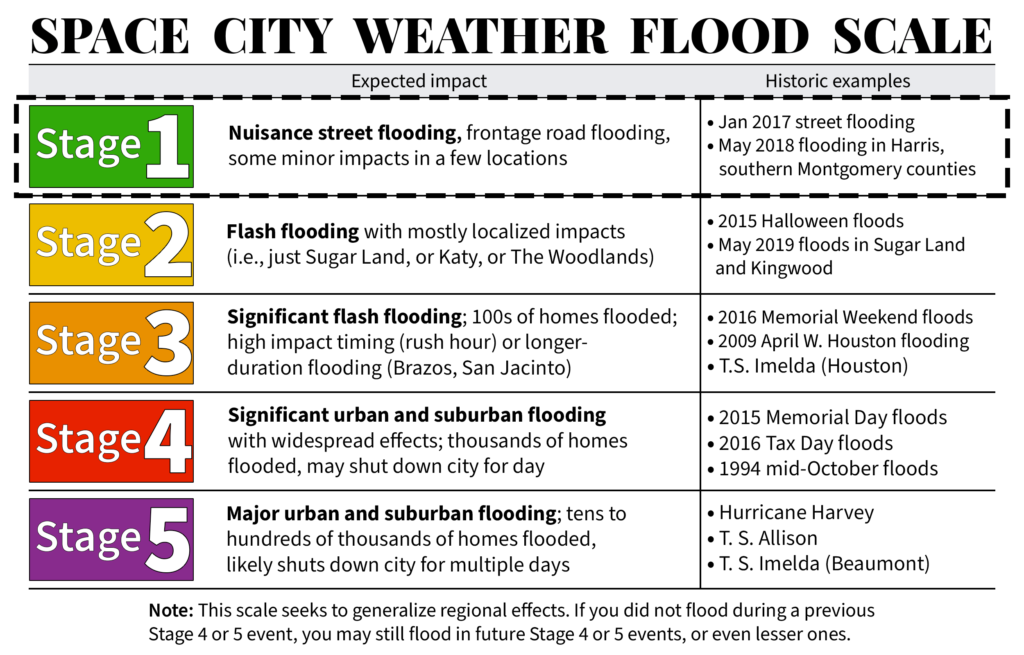
Sunday
Most of the region is starting out in the mid- to upper-30s this morning, and we’re going to see overcast skies. This will help to limit highs in the low 50s today, with an easterly breeze, perhaps gusting to 20 mph at times. From there, temperatures aren’t going to fall much tonight, if at all. Any rain showers should hold off until after midnight.
Monday
This is the day we expect the heaviest and most widespread rain to fall in Houston this week. An upper-level system will bring favorable conditions for rainfall, and this should spread into the region during the morning hours. At this point I expect a mass of showers to congeal west of Houston before sunrise, and potentially reach areas such as Katy by around 6 to 8 am. Please understand that these times are approximate, and there is the potential for some messy commuting on Monday morning.
We should see widespread showers and thunderstorms for pretty much all of the daytime hours in Houston, and I expect most of us to pick up 2 to 4 inches of rainfall. That should be mostly manageable, but we have a few concerns. One is that some areas may see bullseyes of 5 inches or more. The second concern is that the ground is hard from our recent freezes, so instead of soaking up a lot of this rainfall, the water will run off. So 4 inches of rain in January will back up much more quickly than 4 inches in August.
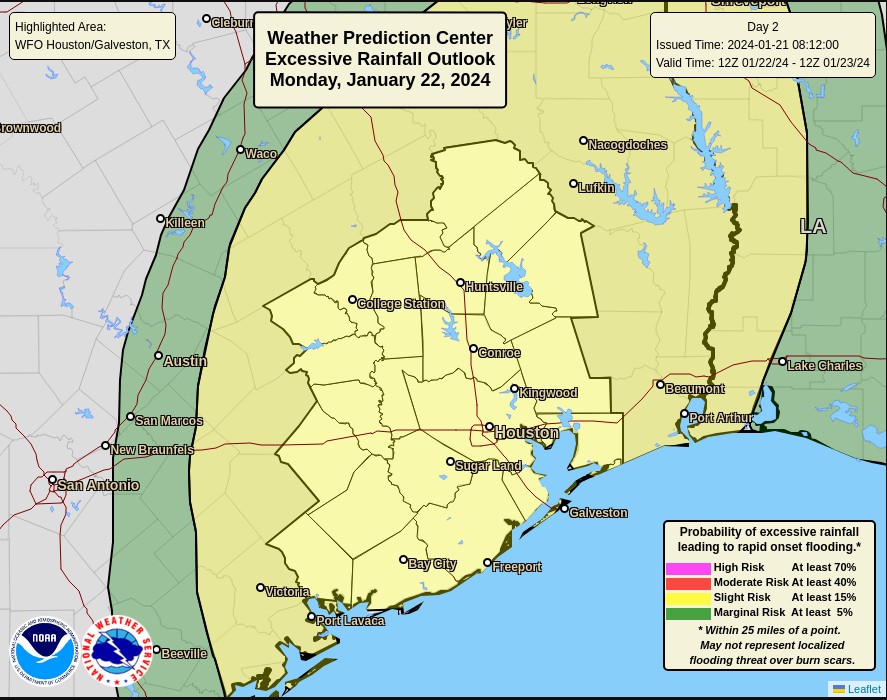
For this reason we’re issuing a Stage 1 flood alert for Monday due primarily to the potential for street flooding. It will be a good day to be weather aware before heading out. Certainly not everyone will see impacts, but the potential is there.
Tuesday and Wednesday
After a possible lull on Monday evening, we are likely to see additional rounds of showers from the period of Monday night through Wednesday. It’s a little early to have much confidence in the contours of these additional periods of rainfall, but it’s my hope that they won’t be quite as intense on Monday.
In terms of temperatures, we’re going to be much milder after Sunday. Expect highs in the 60s with lows in the upper 50s. Conditions turn a bit cooler by the weekend, probably.
All told, I expect the Houston region to pick up between 4 and 8 inches this week. Matt and I will be monitoring the situation closely today, and the rest of the week to ensure that you remain on top of conditions. We will update the site, and our flood scale predictions, as warranted.


